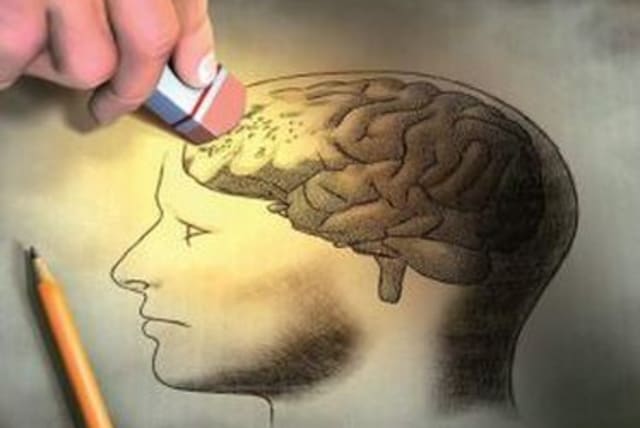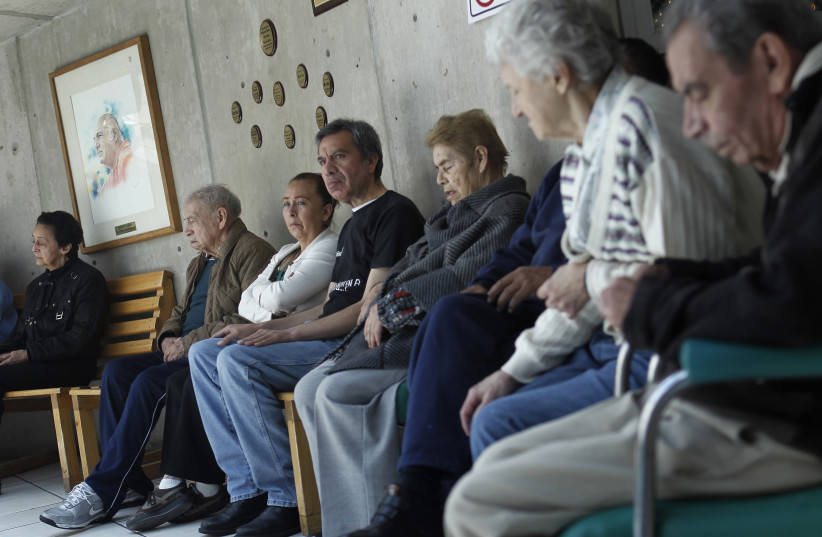The ethics of Alzheimer’s: A challenging, yet critical, balance -opinion

We ask questions concerning our responsibilities in preserving any remaining quality of life and what we must do to preserve their dignity.
In recent years, in large part due to the proven correlation between modern medicine and increased longevity, there has been a noticeable growth in the incidence of degenerative neurological diseases like Alzheimer’s and other dementia-related conditions.
This is therefore a very clear example of a unique blessing/curse dynamic that comes with most scientific progress – and certainly medical innovation.
By nature and tradition, we are taught that long life is a blessed thing and that discovery of medical cures, and defeat of disease, should be commended. And on face value, those are certainly universal truths. We must do everything we can to promote life and embrace every day that has been given to us.
Yet, there is a very harsh reality that quantity of life does not necessarily translate to quality of life. In fact, as many of us witness with family members or friends, just the opposite can be the case. While medicine, fitness and diet often contribute to our body lasting longer, we are also witnessing situations in which our minds are given more time to deteriorate in those “healthier” bodies.
One of the bitter ironies of diseases like Alzheimer’s is that the patient often doesn’t fully understand the deterioration, particularly at the latter stages of the disease’s progression. The heaviest mental and practical burden for these patients falls largely on their loved ones and children who are forced to confront an almost endless array of daily challenges.
With little awareness of their actions, patients with dementia – people whose entire lives may have been defined by sensitivity, patience and compassion – become erratic or even violent. Even when the disease doesn’t manifest itself in these ways, it can be equally disturbing to watch as a highly active parent withdraws into a life of almost comatose inaction and silence.
The very notion of having a loved one looking physically fit but unaware of their surroundings is one of the most difficult things a spouse or child should ever have to deal with – yet it is an increasingly commonplace reality.
Jewish tradition and respect for parents
THIS PRESENTS families with myriad challenges regarding how to treat such a case. How do we respond when a loved one bursts out in rage? On an ethical level, we ask questions concerning our responsibilities in preserving any remaining quality of life and what we must do to preserve their dignity.
Jewish tradition places respect for our parents as a paramount value inscribed in the Ten Commandments and there is no diminishing how central this must be. But the scope of challenges presented by caring for a patient with dementia goes far beyond the more commonplace way we respect our parents.
Coping with a loved one with dementia naturally interferes with every aspect of our lives and how we interact with spouses, our children, community, employment – indeed our own mental and physical health.
It would be irresponsible to assume that these elements of our own well-being be ignored because of the diagnosis of a parent with a deteriorating disease. Rather, we are required to accept that we have been confronted with a deeply challenging balancing act that demands respect for both sides of this equation.
As anyone who has been forced to confront this situation can attest, there are no easy answers. But it is critical, from both a practical and ethical perspective, that we not allow ourselves to become additional victims of a parent’s disease.
When confronted with irrational or even violent behavior, we must remember that this is not driven by any intent, but is only the tragic symptoms of an unforgiving disease. The downward progression of the disease can sometimes force us to make painful decisions in which we will have to say that we can’t do anything more, requiring transfer to long-term care or hospitalization.
Alzheimer’s is a disease that can live within a patient for many months or years and will change the lives of families in ways that directly add to the difficulty of the diagnosis. Effective coping with this diagnosis, therefore, requires that we accept that we must approach it with consideration for our loved one, but no less so with the balance of our own needs.
We can be confident in knowing that is the prudent and just approach, practically, ethically and halachically, and no doubt would be the one our loved one would also endorse and hope that we would embrace.
The writer, a rabbi, is the director of the Tzohar Center for Jewish Ethics and a founder of the Tzohar Rabbinical Organization in Israel.
Jerusalem Post Store
`; document.getElementById("linkPremium").innerHTML = cont; var divWithLink = document.getElementById("premium-link"); if (divWithLink !== null && divWithLink !== 'undefined') { divWithLink.style.border = "solid 1px #cb0f3e"; divWithLink.style.textAlign = "center"; divWithLink.style.marginBottom = "15px"; divWithLink.style.marginTop = "15px"; divWithLink.style.width = "100%"; divWithLink.style.backgroundColor = "#122952"; divWithLink.style.color = "#ffffff"; divWithLink.style.lineHeight = "1.5"; } } (function (v, i) { });

